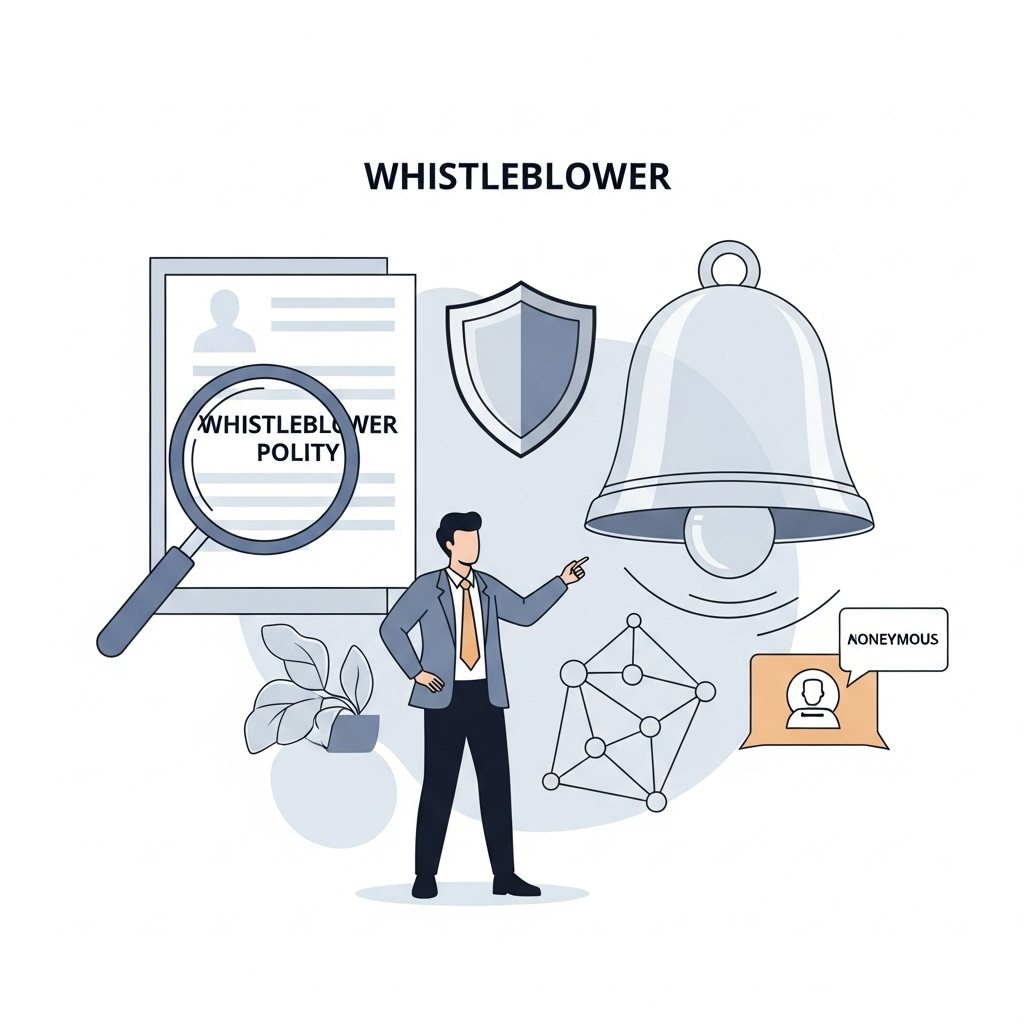Definition
A Whistleblower Policy serves as a protective framework within an organization, encouraging employees to report unethical or illegal activities without fear of retaliation. This policy not only promotes a culture of transparency but also establishes clear procedures for handling reports of misconduct, ensuring that concerns are addressed promptly and effectively.
Key Components
Understanding the key elements of a Whistleblower Policy is essential for creating a safe reporting environment. Here are some crucial aspects to consider:
- Reporting Procedure: Employees should know exactly how and where to report misconduct. This could include notifying a supervisor, reaching out to HR, or utilizing a confidential hotline. For instance, if an employee witnesses unfair treatment in the workplace, they should feel empowered to report it through the established channels without hesitation.
- Confidentiality: Protecting the identity of whistleblowers is critical. All reports should be handled with discretion, ensuring that the whistleblower’s information is shared only with those who need to know. For example, if an employee reports financial irregularities, their identity must be safeguarded during the investigation process.
- Non-Retaliation: This is a cornerstone of any effective Whistleblower Policy. Employees must be assured that they will not face negative consequences for speaking up. Imagine an employee who reports safety violations; they should feel secure knowing that their job is safe, and any retaliatory actions against them will not be tolerated.
- Investigation Process: The policy should outline how reported concerns will be investigated. This might involve a designated team or individual responsible for ensuring thorough and impartial inquiries. For instance, if a report involves harassment, the investigation should be conducted by trained personnel who can handle sensitive situations appropriately.
- Awareness and Training: Regular training sessions can help familiarize employees with the Whistleblower Policy, emphasizing the importance of ethical behavior and reporting mechanisms. Consider hosting workshops that engage employees in discussions about real-life scenarios where whistleblowing made a positive difference.
- Compliance: It’s vital that all employees understand their obligation to comply with the policy and participate in investigations when necessary. Clear communication about the consequences of failing to comply can reinforce the seriousness of this commitment.
Importance in the Workplace
A robust Whistleblower Policy is essential for fostering an ethical workplace. It empowers employees to voice concerns without fear, ultimately leading to a healthier organizational culture. For example, consider a situation where an employee notices fraud in expense reporting. If they feel secure in reporting this behavior, it can help prevent larger financial losses and uphold the company’s integrity. Conversely, a lack of such policies can lead to a toxic environment where issues go unreported and festering problems grow, damaging morale and trust.
Best Practices
Implementing a successful Whistleblower Policy requires thoughtful planning and execution. Here are some best practices to consider:
- Communicate Clearly: Make sure the policy is easily accessible and understandable for all employees. Use simple language and provide examples to illustrate scenarios where the policy applies.
- Encourage Open Dialogues: Create an environment where employees feel comfortable discussing their concerns. Regularly remind staff that reporting misconduct is a sign of integrity, not disloyalty.
- Provide Multiple Reporting Channels: Offer various ways for employees to report concerns, such as in-person meetings, anonymous hotlines, or online portals. This flexibility can help accommodate different comfort levels.
- Follow Up on Reports: Ensure that employees receive updates on the status of their reports, reassuring them that their concerns are taken seriously and handled appropriately.
- Regularly Review and Update the Policy: Keep the Whistleblower Policy current by reviewing it periodically and adjusting it based on feedback or changes in laws and regulations.
Legal Considerations
Understanding the legal landscape surrounding Whistleblower Policies is crucial. Various laws, such as the Whistleblower Protection Act, safeguard employees who report misconduct from retaliation. Familiarize yourself with both federal and state laws that may impact your policy. For instance, some state laws provide additional protections for whistleblowers, which you might want to incorporate into your organization’s policy to ensure comprehensive coverage. Consulting with legal experts can help ensure your policy complies with relevant regulations.
Conclusion
In summary, a Whistleblower Policy is more than just a set of guidelines; it is a commitment to uphold ethical standards and ensure a safe reporting environment. By understanding and implementing this policy effectively, you contribute to a culture of transparency and accountability. As an HR professional, your role in championing this policy is vital, as it enables employees to feel secure in raising concerns and ultimately strengthens the organization as a whole. Remember, a safe workplace is a productive workplace, and your efforts can make a significant difference.




